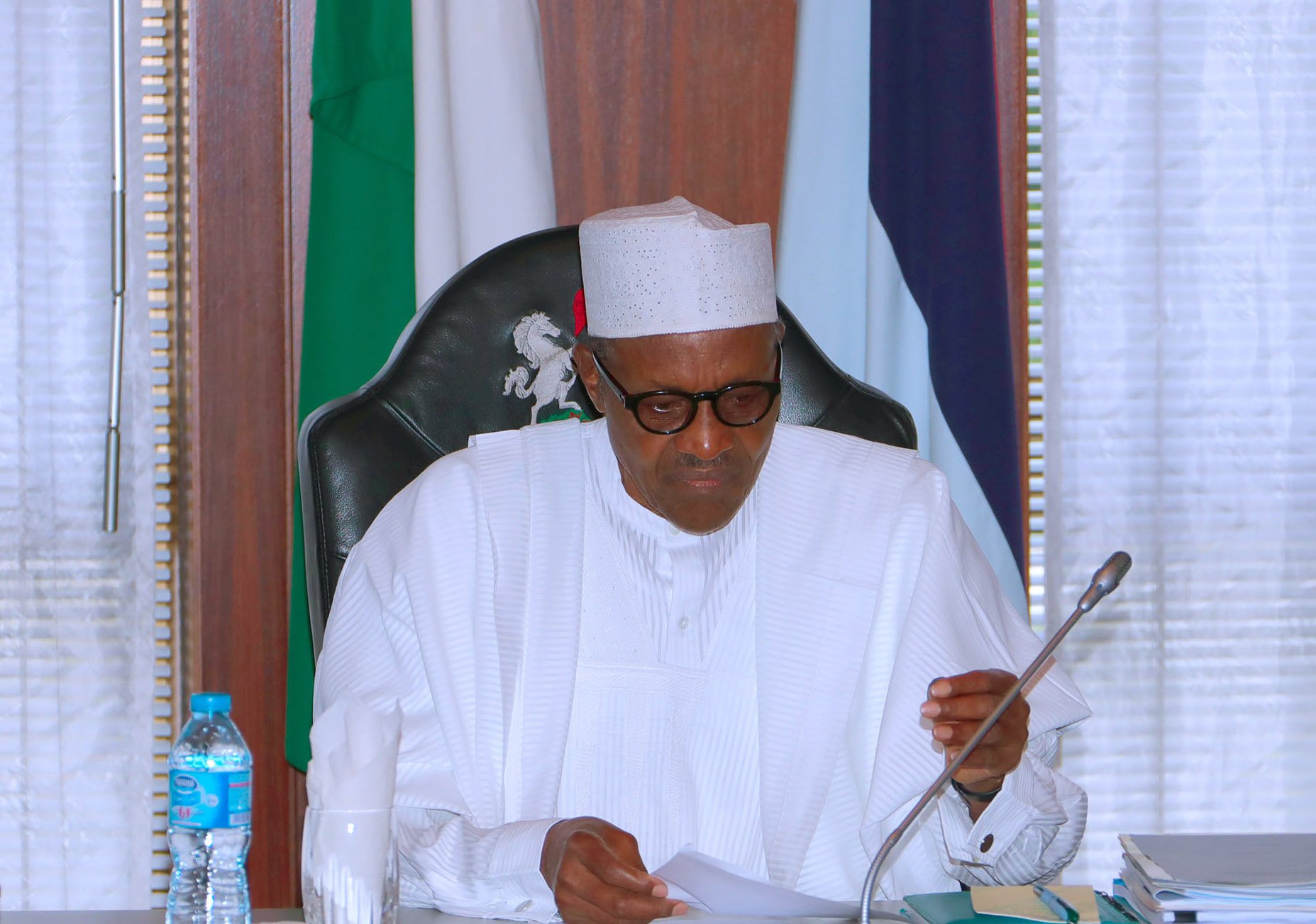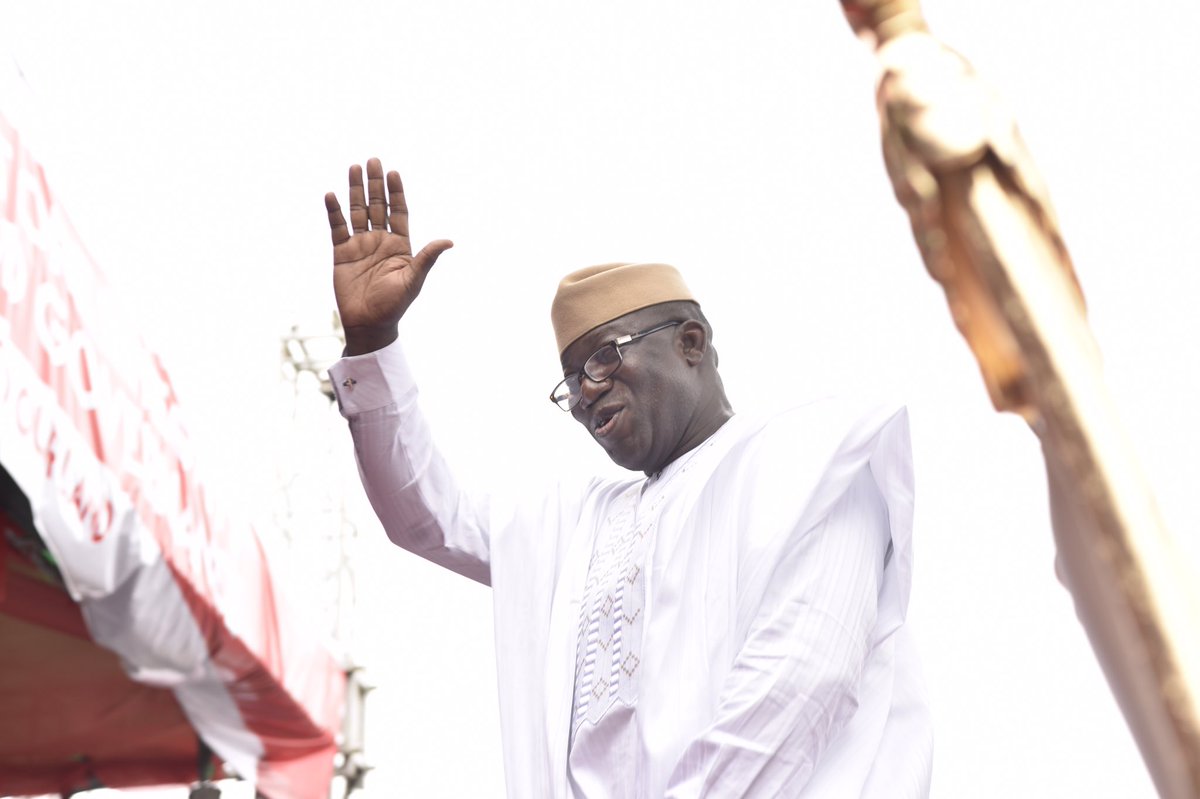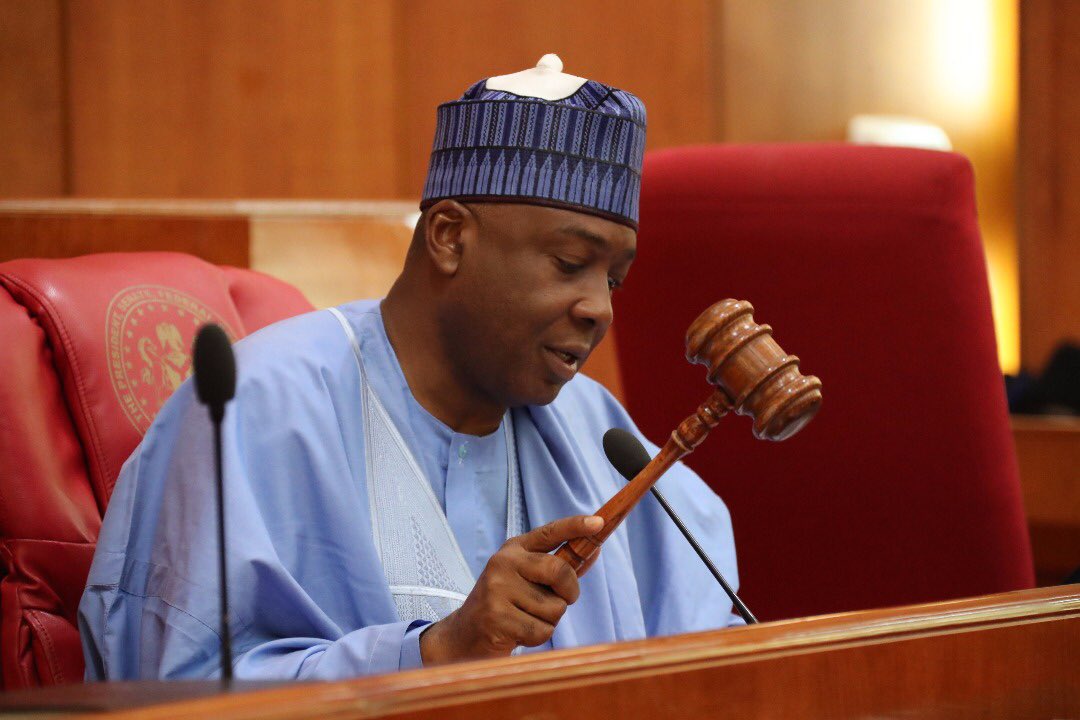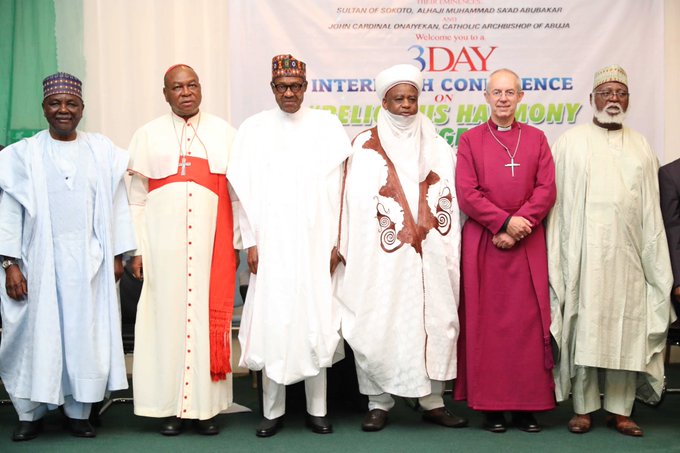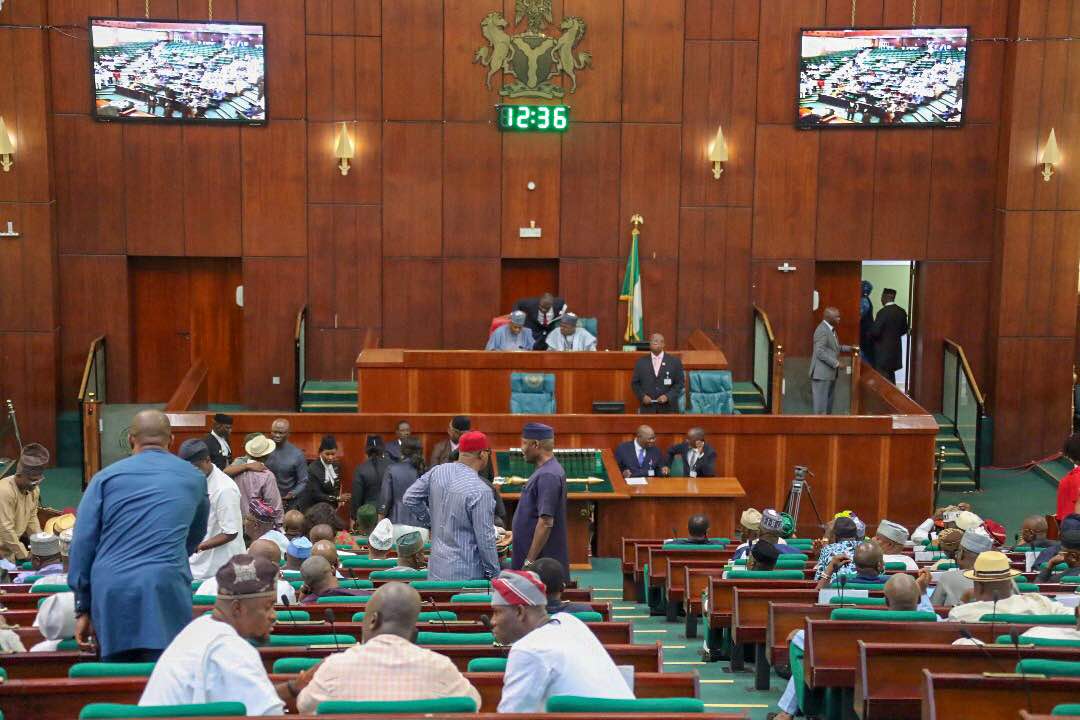PRESIDENT BUHARI MEETS SECURITY CHIEF 0a. President Muhammadu Buhari meeting with Security Chiefs at the State House Abuja. PHOTO; SUNDAY AGHAEZE. AUG 2 2018
The legality of President Buhari’s Executive Order 6 (EO6) has been affirmed by Justice Ijeoma Ojukwu of the Abuja Federal high court and right now the most cries against EO6 seem to be centred around Buhari’s cronies not listed among the 50 persons banned from travelling outside the country but a careful look at the constitution viz-a-viz EO6 would show Justice Ojukwu erred in her decision to uphold the constitutionality of the President’s EO6.
The exception to the constitutionally guaranteed Freedom of Movement which the President’s EO6 purports to breathe life into is Section 41 (2a) of the constitution.
S.41.— Right to freedom of movement – Every citizen of Nigeria is entitled to move freely throughout Nigeria and reside in any part thereof; and no citizen of Nigeria shall be expelled from Nigeria or refused entry thereto or exit therefrom.
(2) Nothing in subsection (1) of this section shall invalidate any law that is reasonably justifiable in a democratic society—
Advertisement
(a) imposing restrictions on the residence or movement of any person who has committed or is reasonably suspected to have committed a criminal offence in order to prevent him from leaving Nigeria;
I base my submission on the unconstitutionality of EO6 on Section 36(2) of the constitution.
36.— Right to fair hearing
Advertisement
(1) In the determination of his civil rights and obligations, including any question or determination by or against any government or authority, a person shall be entitled to a fair hearing within a reasonable time by a court or other tribunal established by law and constituted in such manner as to secure its independence and impartiality
(2) Without prejudice to the foregoing provisions of this section, a law shall not be invalidated by reason only that it confers on any government or authority power to determine question arising in the administration of a law that affects or may affect the civil rights and obligations of any person if such law—
(a) provides for an opportunity for the person whose rights and obligations may be affected to make representations to the administering authority before that authority makes the decision affecting that person; and
(b) contains no provision making the determination of the administering authority final and conclusive.
Advertisement
Section 36(2a) clearly provides that any law which confers power on government or any authority to determine questions pertaining to the civil rights and obligations of persons is legal only to the extent that it affords those persons an opportunity to make representations before the administering authority. And don’t for once think Section 41(2a) which EO6 is hinged on and Section 36 (2a) is one of those instances where the constitution appears to be contradicting itself. It is not.
The word ‘reasonably’ in Section 41(2) implies an intention for the determination of the restriction placed under Section 41(2a), the President’s EO6 to be a fair one. It has always been within the exclusive confines of the court to determine who is the ‘reasonable man’.That above every other thing should warn our courts as to the intentions of the draftsmen to connote fairness rather than arbitrariness. Having said that, the reasonability of the circumstances warranting the imposition of such an order can only be determined if the other party is allowed to make representations before whomever the administering authority is. Going by the very explicit provisions of Section 36 (2a).
As soon as the government released a list of persons it labelled looters; people not so adjudged by our courts, some of us were quick to warn on the legal implications of doing such. It’s a clear case of defamation of character. As it turns out, High Chief Raymond Dokpesi and Prince Uche Secondus have instituted cases against the government demanding billions. The judiciary must guard against aiding this goverment to perpetrate illegality.
Without a knowledge of legislation stipulating procedures and ones governing the evidential arm of law, even the non-lawyer can key into the ‘spirit of the law’.The reason why they get a lot of things lawyers get wrong, very right.
Advertisement
Just like you can’t call anyone who hasn’t been so proven by our courts a looter. The non-lawyer’s view on it not being right for the President to have it within his power to ban people from travelling is very much in order and should be a topic when next our constitution is amended.
A just law ought to reserve such powers for the courts but until then, the law as it stands is that he has no powers to decree such except those persons make representations before him.
Advertisement
Add a comment

